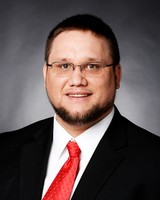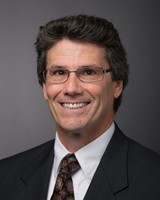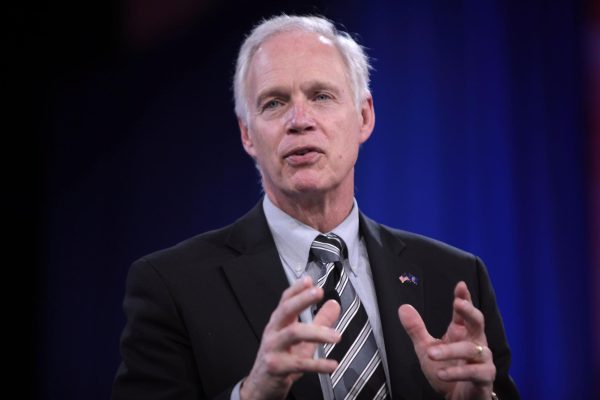Professors make national news
UW Oshkosh finance professors Cliff Moll, Robert Kunkel and Bruce Niendorf recently had their research mentioned in national news. The three were cited by Barron’s Financial Investment News and InvestmentNews after finding $17 billion per year was being taken from investors’ pockets.
Moll, Kunkel and Niendorf conducted research on what the “Obama effect” and the “Trump effect” had on the fiduciary rule for investment companies during their administrations. The rule states that fiduciaries like financial advisers who deal with retirement plans or provide retirement planning must act in the best interests of their clients, rather than themselves, such as when commissions are involved.
In April 2016, President Barack Obama passed the fiduciary rule which was put in place to protect individual investors. This rule meant that investment advisers would have to provide conflict-free advice that put their clients’ best interests ahead of their own.
In February 2017, President Donald Trump delayed the fiduciary rule from taking effect in April 2017, and the rule was officially killed in June 2017, meaning there was no longer anything in place to protect an investor from conflict-of-interest fees for retirement accounts.
Moll, Kunkel, and Neindorf researched 30 investment companies and found conflict-of-interest fees were creating $17 billion per year in additional fees. This money came out of investors’ pockets.
Lead author on “How do Investment Companies Fare Under Obama and Trump Fiduciary Rules?” Cliff Moll said they started the research by studying the stock market’s reaction to the fiduciary rule.
“If the market thought that it was bad for the companies, their stock prices would fall,” Moll said. “The stock gives the value for all the future cash flow of the firm, so if the cash flows are expected to fall because now they can’t charge these conflict-of-interest fees and collect them from investors, then they’ll have small cash flows and the stock price will decrease. We were trying to see if that was the case and we found that was the case.”
Cliff said they found the average market capitalization [the market value of a publicly traded company’s outstanding shares] loss was $385 million upon the announcement of Obama’s fiduciary rule.
The team then studied the effect of the 2016 presidential election and what was anticipated to happen to the fiduciary rule, as well as what effect that had on the stock market.
“It was interesting because we got to study what happened to these firms when the election results came out,” Moll said. “What we did then was study the reaction to that news. Trump had even signaled that he was going to roll back regulations. A lot of these regulations on these firms was essentially going to be repealed or overturned. We thought, ‘Well, if that’s the case, then those investment companies could then still collect those fees, and if collecting those fees would increase their cash flows, that should have a positive impact on their stock price.’ And that’s what we found.”
Investment companies were able to get all the losses back from the repeal of the fiduciary rule and then some. The Trump administration killing that fiduciary rule led to an average market capitalization gain of $1.56 billion.
Moll said the repeal of the fiduciary rule made a large impact on the market capitalization.
“Conflict-of-interest fees created $17 billion per year in additional fees; that’s why we saw such a huge change in the market cap, because then these $17 billion of fees could be put on the books again when the fiduciary rule was taken out of effect,” Moll said.
Niendorf said there are good and bad elements to the fiduciary rule being repealed.
“The bad elements are that without that fiduciary rule in place, a financial adviser can advise you to put your money, say, in a mutual fund, that maybe has higher fees associated with it than alternative mutual funds,” Niendorf said. “They can advise you to put your money in one with higher fees because they get a percentage of that. It doesn’t take much, even half of a percentage point charge can add up to thousands of dollars for a person by the time they hit retirement. Some of the fees are annual fees; they will charge you a percentage for the money they are managing for you.”
According to Moll, the State Corporation Commission [SCC] is currently trying to propose a new rule that might replace the fiduciary rule to some extent.
“They had some town hall meetings and got a bunch of public input,” Moll said. “They had a period of a few months for the public to provide input on these rules. That comment period ended late August, so now they’ve got all the comments and they’re trying to figure out what comes next.”
Moll said if investors are made aware of the risks, they should be able to make informed decisions how to invest their money.
“Fiduciary rule seemed to be a good step in the right direction,” Moll said. “I believe investment companies deep down should be able to charge what fees they want, but they definitely have to be very up front about it so that investors know. The thing is, a lot of investors don’t know.”
Niendorf gave advice to students interested in avoiding conflict-of-interest fees.
“The biggest thing is if you’re going to use a financial adviser, find one [that] is independent,” Niendorf said. “A lot of financial advisers work for investment companies and up front what they charge may look cheaper, but you keep paying that percentage and pay far more over the years. You can find a financial adviser that will charge you a one-time fee. In the long run, you’re way farther ahead than getting hit with that percentage every year.”
Moll said the goal was to put the research out there for the academic community, but he didn’t expect their research to catch the attention of national news.
“I thought well that’s really cool; I never thought anything like that would happen,” Moll said. “We knew we had really good results, but for it to be picked up and put out there for everyone to see in a more mainstream way and to see people talking about it and individuals turning it into a discussion about how to avoid these fees is really great to see.”
Kunkel said Moll was a student of his before he graduated in 2006, and he has had a lot of fun seeing Moll’s achievements over the years.
“Not only did it get picked up by Barron’s and InvestmentNews, he did a paper with me in 2014 and earned a Best in Track Award for Education in Finance and in 2013 he won the Best in Track Award for Investment and Portfolio Management,” Kunkel said. “He is a great example of what you can do coming out of Oshkosh.”
Niendorf said the team plans to do more follow-up research if the SCC comes out with a replacement plan for the fiduciary rule.










